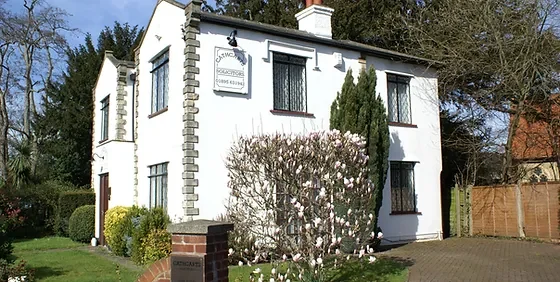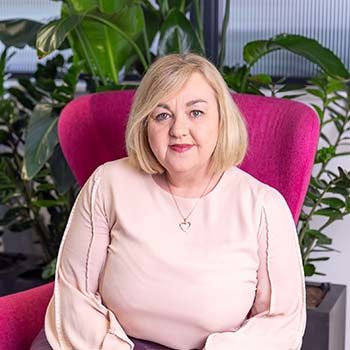1. Failing to have the Will witnessed correctly
All Wills need to be signed in the presence of two independent witnesses, who in turn must sign the document. If not done correctly, the Will is invalid. The witnesses must be over the age of 18 and not named as beneficiaries in the Will or related to any beneficiary named in the Will.
2. Creating a DIY Will
It’s very easy to make mistakes when creating your own DIY or online Will. Key errors include misspelled names and failure to execute the document correctly. These problems cannot be remedied once the person who created the Will passes away and can lead to arguments, potentially resulting in costly legal action.
There may be situations that you’ve not considered that could impact on your estate, such as ensuring the will is drafted in the most tax efficient way, which is why it’s useful to seek independent, expert advice. Solicitors have the expertise to challenge your rationale and encourage you to consider other scenarios beyond your current position and can draft your Will to accommodate for future changes in circumstance.
3. Forgetting key assets
Most people remember to include their key assets of money, property, or specific items that they’d like their beneficiaries to inherit. However, it can be easy to overlook the impact of foreign assets or business assets on your Will and the practicalities of dealing with these. It is also worth considering your digital assets and think about what will happen to your online accounts and social media profiles after you die.
4. Not updating the Will after your circumstances change
It’s vital that you don’t think of writing a Will as one-off event. It should be reviewed every five years or when major changes happen in your life such as a marriage, divorce, or the loss of one of your beneficiaries and/or executors. Failing to review your will on a regular basis can result in important omissions, or even invalidate the existing will entirely.
5. Not writing one at all
Many people assume that their spouse, civil partner or common law partner would be entitled to everything after they die. This is not the case.
If you die without making a Will, there are strict intestacy rules which dictate how your assets will be distributed. Currently, if you have a spouse or civil partner and children, your surviving spouse or civil partner, would receive a statutory legacy of £270,000 plus interest from the estate, your personal belongings and half of the remaining estate (this does not include jointly owned assets with your spouse/partner) and the children will receive the remaining half.
This may seem like a lot of money, but what if your share of the property you live in is worth more than that? Your spouse or civil partner may find themselves in co-ownership with the children and the children could try and force the sale of the property, which would be hugely stressful for your surviving spouse or civil partner.
If the children are under 18 and the estate is worth more than the statutory legacy, then the half share of the remaining estate would be held on trust for the children until they reach adulthood (or marry under that age). This could cause practical difficulties for the surviving spouse if they are left with insufficient funds to meet their own needs, whilst the remaining funds are held in trust for the minor children.
It’s also important to note that if you’re not married to your partner, even if you were living together when you passed away, your surviving partner is particularly vulnerable without a Will. They will have no automatic rights to your estate and the intestacy rules will determine what happens to your assets.
Reasons why people don’t make a will – True or false?
A recent survey by the ONS has found that a staggering 30 million people in the UK have not made a Will. There are various reasons for this, including many people thinking they are not old enough or that they are too busy to get around to it. If you’ve not made a will, perhaps it’s time to take our quick test which may persuade you to start planning for the future
1) I don’t need to make a Will as I am married and everything will go to my spouse if I die
FALSE – When a person dies without making a will, their estate is subject to the rules of intestacy. Many people assume that their spouse would inherit all of their assets, but this is not always the case. In general, the spouse would inherit the first £250,000 of the estate with the remaining assets being divided between the spouse and the deceased’s children.
2) Once I pass away, all my debts will be cancelled.
FALSE – The deceased’s assets will be used to pay off any debts. Beneficiaries (either in a will or under the intestacy rules) will receive any estate that remains.
3) I can only set up a Power of Attorney (LPA) when I have full mental capacity.
TRUE- an LPA can only be created by the person whose affairs will be taken care of. If that person doesn’t have the required mental capacity they cannot proceed and instead the family will have to apply to the court for a deputyship appointment which is both costly and time consuming.
4) I only need to think about a will when I’m much older
FALSE – No one can predict the future and know how long they’re going to live. Preparing a will now ensures your loved ones are protected.
5) I can make a will all on my own.
TRUE BUT not advisable – Many homemade wills contain errors which invalidate the Will or a particular gift. Common mistakes include failing to sign correctly, not securing appropriate witnesses (such as minors or beneficiaries) or using incorrect wording. Seeking expert advice ensures the correct procedures are followed and the adviser will talk you through everything – including things you may not have thought about!
Who should make a Will?
It’s well known that if you own a property and have children you should make a Will. But there are many more circumstances where it is useful to have one.
- Are you married or in a civil partnership?
- Are you co-habiting with your partner?
- Have you bought a house with friends?
- Do you own substantial assets?
- Are you getting divorced?
- Have family relationships changed?
- Do you have children from a previous relationship?
- Is there anyone who is financially dependent on you?
If you’re ticking any of these boxes, maybe it’s time to make a Will.
Should I do it myself or use a qualified solicitor?
It is tempting to choose a DIY or online Will, which may cost less than £30 and only take 30 minutes to complete. But if this sounds too good to be true, it probably is. If mistakes are made or if the strict witnessing rules are not followed correctly, the document could be invalid.
Problems can also arise if your circumstances change, as many DIY wills cannot accommodate this and some handwritten notes on the original Will to highlight your new decisions will not suffice.
B P Collins can help ensure all obligations are met, plus confirm you have thought of everything, so the Will is comprehensive and watertight. Involving an experienced wills, trusts and probate solicitor is particularly advisable if you have a sizeable estate as they can advise on tax efficient options and trust provisions to protect your assets.
The private client team at B P Collins LLP has become one of the first law firms in the country to be given the Wills and Inheritance Quality Scheme Award (WIQS) from The Law Society.
It provides a best practice quality mark for wills and estate administration advice that consumers can trust and outlines required practices in areas such as will drafting, probate and estate administration.
Lucy Wood, partner and leader of the wills, trusts and probate team, said: “We’re delighted that our expertise and quality of service has been recognised with this Award, which gives clients the reassurance that we have their best interests at heart at all times.”
B P Collins is one of only sixteen firms in the UK to be accredited under the scheme which is based on a Wills and Inheritance Protocol that sets specific client service standards to ensure transparency in process, costs and communications, and it is designed for practices that offer both wills and probate/estate administration advice.
In order to gain accreditation, practices have to demonstrate they are compliant with the protocol, which is intended to help prospective clients to make a confident and informed choice of local legal practice.
B P Collins has a team of wills, trusts and probate lawyers, that can help you write or review your Will and provide bespoke advice on next steps. The team are also members of the Law Society’s Wills and Inheritance Quality Scheme (WIQS). For further advice contact 01753 889995 or email enquiries@bpcollins.co.uk.



















